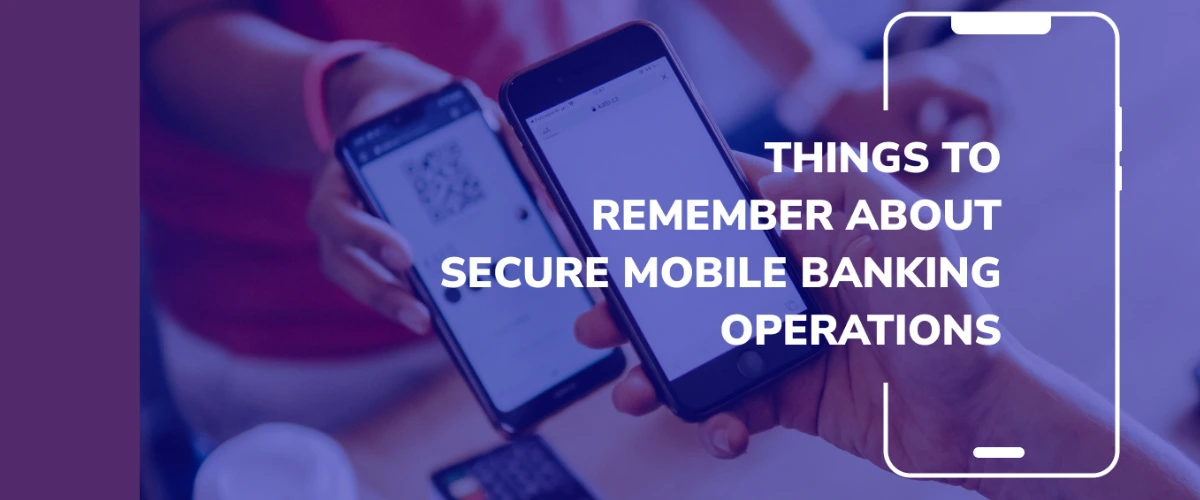Are you wondering if mobile banking is safe for you or not? To find the answers, read this article and get some insights along with some valuable and comprehensive tips to follow for your bank account's security.
Many consumers use mobile phones for essential banking services, such as depositing checks and transferring money between accounts. Mobile phones enable people to perform these tasks anytime, anywhere.
But does this make us vulnerable to cyber-attacks?
It is generally believed that although the risk of banks is low, security depends on consumers to a certain extent, and many of them have not taken the necessary measures to protect their mobile phones from attacks. According to experts, banks can better inform consumers about cybersecurity issues.
Recently, many fraud cases have been happening. Money laundering has become a trend among impostors. For instance, you may get a call saying that the speaker is calling from your bank and has a problem with your account. After this, they will ask you to provide your bank details. If you do, they will phish out all the money from your account or link your bank accounts to any digital wallets like Google Pay or Phonepe; then, be particularly careful while proceeding with the payment. If you are careless, then all the money can be stolen. That is why there are a few factors that you need to remember about secure mobile banking operations.
Below is a list of eight tips provided for you.
Download the verified banking application from your bank website
Many banks have links to app stores on their websites to download the apps you need. Your bank needs to know which mobile app you are using, its features, and what you need to access it. Then use a trusted app store and watch out for app owners/developers. And whether there are other apps with the same name.
Make sure your bank uses two-factor or multi-factor authentication
Two-factor authentication requires customers to log in to their account with a password or PIN and requires a second way to verify their identity, such as copying their code on their mobile phone, and it will be sent. Someone can access your phone, or someone can intercept SMS traffic to get the code.
Use strong passwords
One of the best ways to protect yourself is to use a password that contains upper and lower-case letters, numbers, and random characters. Don't let the browser remember this either; use a strong password manager instead.
Authoritative password managers are coded to reduce user risks and are well protected from potential intruders. Most network security professionals recommend password management software.
Avoid using public WiFi
When you enter a public WiFi hotspot, you will often receive a warning that you are not using a secure network, and others can see your online activities. It is an important reason why financial transactions are not conducted through public networks. Instead, use a cellular network or home WiFi to protect your data better.
Practice phishing/ scam awareness
Phishing emails are emails in which scammers try to trick recipients into revealing personal information, and cheating scammers use this bait in text messages.
"Users should first become familiar with their banking applications to identify unusual problems or pop-ups that are slightly different from normal functions," Walsh said.
Set up notifications via email, SMS, or banking app
This instant notification helps consumers identify potential fraudulent activities, which can then be dealt with immediately by their bank.
Password Keeper / Vault
If you forget the password, you can spend time and effort storing the password in the digital vault or locker at any time. Saving passwords as contact information or notes is a
Dangerous practice. Download a third-party secure password storage application. LastPass, Dashlane, and Intel True Key are safe and easy-to-use applications. Repeating the same password will not help.
Antivirus
Antivirus is one of the first walls to protect your phone from malicious software. Good antivirus software can stop Trojan horses and viruses and make it difficult for hackers to access your phone. Although there are several free offers, because mobile phones are used for payment and transactions, antivirus software can appear as an attachment. Nod32, Norton, and Avira may be good choices.
Is it safe to use the mobile banking application? Yes, it is. Download the official banking app, stay up to date, use a VPN with public WiFi, and keep your phone within reach. However, this does not completely protect you from fraud, malware attacks, and hacker attacks. Your common sense is your last line of protection. The victims of mobile banking hackers are usually people who do not value security. And above all, follow all the tips that are provided here.



Let's Discuss Your Idea.!
Whether you have a question for our team, want to chat about your project ideas, or are curious about our expertise, please send us your request using the form below.
Contact Info
Our contacts